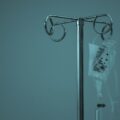A dirty little secret in medical literature, systematic reviews are only as strong as the individual studies they examine. And when negative data are not published in the major medical or scientific journals, as is commonly the case, these reviews cannot help but be skewed. A report by the British Medical Journal found that when outcome data were re-analyzed to include the unpublished data for 42 previously FDA-approved drugs, a whopping 93% of the outcomes changed.
All data matter, especially in medicine. With systematic reviews and meta analyses, the gold standard in scientific publishing, researchers seek to make claims about a particular drug or health event based upon the totality of the published research. Physicians and other scientists use these systematic reviews to guide decision-making. Prescribing a drug based upon the positive findings of a systematic review gives one considerably more confidence than doing so based upon a few unrelated studies. When the systematic reviews are based upon insufficient reporting of negative or null results, the review is likely inaccurate.
Publication bias, as it is called in research circles, is a well known problem to many. By nature, scientific journals gravitate toward positive and novel results, in much the same way TV news reporting tends toward negative, salacious events. Both are clamoring for market share. Unlike in TV news, bias in the research industry can and does have serious consequences when medical-decision making rely on those results. Noted physician and medical blogger Harlan Krumholz, contends that medicine’s biggest threat is not some exotic virus, but missing data.
Case and point, when data about adverse events are withheld from publication, bad drugs, such as Vioxx are released into the market place and presumed safer than they actually are. A similar scenario is emerging for Yaz/Yasmin. These birth control pills are currently facing a bevy of lawsuits for some serious adverse events.
So what is one to do, who does one trust? I don’t know the answer to that question, but I think that good first steps include transparency and open access to data and research. As a patient, this includes access to scientific and medical research as well as access to our own medical data. As we report in the stories below, access to research is at risk if the Research Works Act passes.
A next step is to demand all data be published in drug studies, the good, the bad and the ugly. The British Medical Journal reports, those data are available in many, but not all cases, through FDA and other repositories. However, culling and analyzing those data along side the published reports is no easy task.
Perhaps a third option, is post-market crowdsourcing. Granted, not the best option when dealing with potentially dangerous therapeutics, but in this new environment of empowered patients and big data, crowdsourced research is becoming more common. The organization adverseevents.com is aggregating patient-reported adverse reactions to medications. It’s freely available to patients and physicians globally. A myriad of other companies have come on the market in recent years to crowdsource the research for all sorts of medical conditions. These companies offer patients the opportunity to participate and learn directly from the research conducted. Unlike traditional clinical research, the data and results are not cloistered, but are open and readily accessible.
In the end it all comes down to data and how we use it to make decisions about our health. I believe data matter. I believe data ought be open and accessible. What do you think?
Participate in Crowdsourced, Post-Market, Adverse Events Research
Take a few minutes to complete a survey about the medications and surgical procedures you have utilized. Take as many health surveys as are applicable and share the surveys with your friends. All surveys are anonymous and completely voluntary. We’re adding more surveys every month, so check back frequently or sign up for our weekly newsletter to keep abreast of the latest research news.
Take one of our health surveys:
- Understanding oral contraceptives safety, off-label prescribing and efficacy
- Hysterectomy – causes, outcomes and efficacy
- Gardasil Cervarix – safety and side-effects
- Lupron Side Effects
- Fluoroquinolone Side Effects
- Endometrial Ablation – short and long term outcomes – coming soon
- Pain Medication Use in Women – coming soon
Crowdfund Research on Medications that Matter to You
Lucine Health Sciences and Hormones Matter, are unfunded and run by Dr. Chandler Marrs along with a cadre of dedicated volunteers. We know the work we do is important and needed and so we’re doing it anyway, despite the lack of funding. We’re bootstrapped to the nth degree, but determined to fill the critical data void in healthcare, one study at a time.
We’ve set up an unsubscription model to fund our education and research programs. We call it an unsubscription because it is not really a subscription in the true sense. It’s just a mechanism to fund the work that maintains our commitment to open access health information on Hormones Matter. By purchasing an unsubscription you are supporting our continued operations and research; research and health information we all need but can’t get anywhere else. To help fund additional research: Crowdfund Us.












